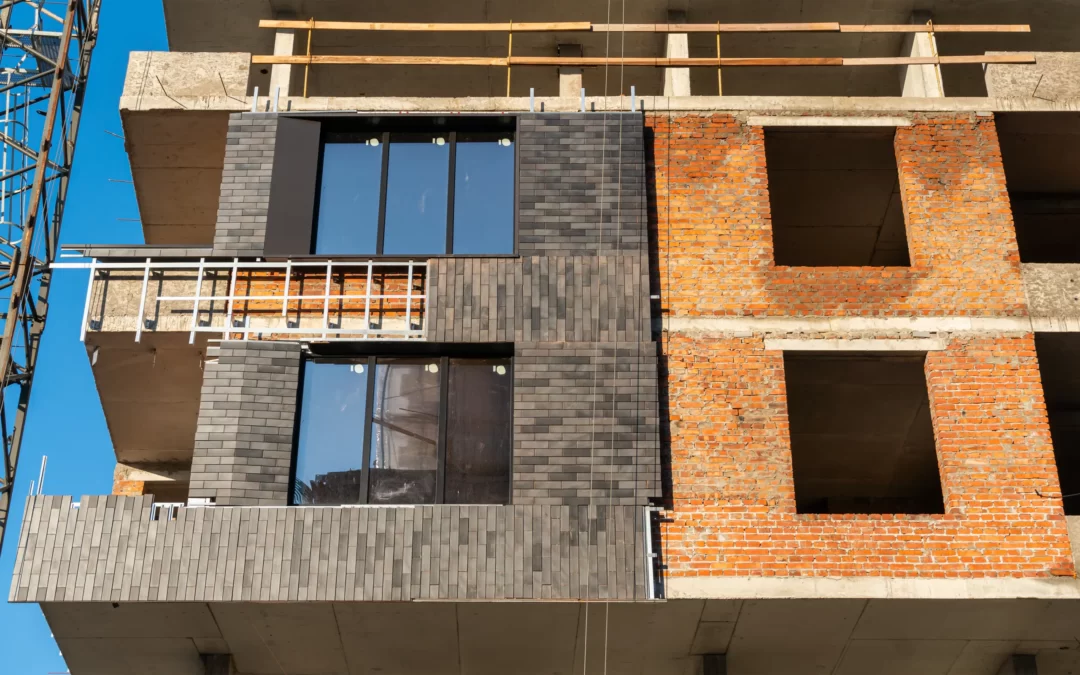On 7 February 2023, Ball J delivered the decision in The Owners-Strata Plan 86807 v Crown Group Constructions Pty Ltd [2023] NSWSC 44 (Crown).
In Crown, The Owners – Strata Plan 86807 (Owners Corporation) sought leave to file an amended summons and Amended Technology & Construction List Statement, that:
- Firstly, expanded the claim against the first defendant, Crown Group Construction Pty Ltd (Crown Group), the builder, and the second defendant, Crown W Pty Ltd (Crown W), the developer, for breaches of the warranties implied by section 18B of the Home Building Act 1989 (NSW) (HBA) to add a claim in respect of the cladding on the façade of the building; and
- Secondly, added a claim against Crown Group for breach of a duty of care implied by section 37 of the Design and Building Practitioners Act 2020 (NSW) (Design Act) in respect of the cladding.
Justice Ball refused leave to the Owners Corporation to amend its claim under the HBA and disallowed the amendments to the Owners Corporation’s pleadings concerning the Design Act, but did provide the Owners Corporation with another opportunity to replead its case if it elected to do so.
Background
The contract for the construction of a residential strata development in Waterloo (Property) was entered into on 30 April 2012. The final occupation certificate was issued on 12 December 2014.
On 6 December 2016, the Owners Corporation commenced proceedings against Crown W and Crown Group, alleging that there were a number of defects in the building work and claiming damages for breach of the warranties implied by the HBA.
Following the commencement of proceedings, in 2018, questions regarding the suitability of cladding erected on the Property came into question. In order to allay its concerns, the Owners Corporation engaged BCA Logic to prepare a report in relation to the cladding. Following receipt of the report, the Owners Corporation sought comments on that report from Enercon Engineering (Enercon). Enercon expressed the opinion that the cladding was compliant. Accordingly, the Owners Corporation did not press this issue.
After some time, in 2021, the Owners Corporation engaged Credwell Consulting (Credwell) to undertake further investigations of the cladding. This decision was taken following new information being brought to the Owners Corporation’s attention, particularly surrounding amendments to the Building Code of Australia (BCA) and Crown Group’s conduct in other matters.
Following preliminary advice provided by Credwell, the Owners Corporation filed a Notice of Motion to add “combustible cladding” to its claim.
The Owners Corporation also engaged Credwell to undertake a “peer review” of the report prepared by BCA Logic in 2018. In its report, Credwell concluded that: “Based on the review of the documentation provided there is no evidence to show that the cladding complied with the BCA that applied at the time of construction”.
Accordingly, the Owners Corporation sought to make two amendments to its claim for breach of the statutory warranties contained in the HBA, both of which essentially added and particularised the combustible cladding to its claim, as well as an alleged breach of a duty of care implied by the Design Act.
Crown W and Crown Group objected to the amendments on the basis that:
- the claim for breaches of the warranties implied by s 18B of the HBA is out of time;
- the amendments are futile because there is no evidence that the cladding did not comply with the BCA at the time that it was installed;
- the Court in the exercise of its discretion should refuse leave to amend because no adequate explanation has been given for the delay and the amendments are likely to cause the defendants prejudice; and
- the claims are liable to be struck out because they are inadequately pleaded.
Judgment
Issues relating to the limitation period
Justice Ball stated that the critical issues that must be considered when determining whether the limitation period under section 18B of the HBA has expired include:
- whether there has been an adequate explanation for the delay in adding the new claim;
- whether the claim has reasonable prospects of success; and
- the prejudice Crown W and Crown Group will suffer if the amendment is allowed and the prejudice the Owners Corporation will suffer if it is not.
The claim under the HBA
Justice Ball held that there are three broad discretionary reasons for refusing leave to amend the Owners Corporation claim under the HBA.
First, there was no evidence before the Court that the Owners Corporation had an arguable case that the cladding did not conform with the BCA. The report prepared by Credwell only states that there is no evidence that the façade complied with the BCA at that time.
Second, the Owners Corporation had an ample opportunity to investigate the cladding but did not do so.
Third, the delay is likely to have caused Crown W and Crown Group prejudice.
The claim under the Design Act
Justice Ball held that the principal difficulty with the claim under the Design Act is that it is inadequately pleaded because it does not give proper particulars of how it is said that Crown Group was negligent.
His Honour indicated that it is not sufficient to simply allege that Crown Group was under a duty to undertake whatever enquiries would have revealed that the cladding was defective, but rather consideration must be given to the enquiries undertaken by Crown Group and what they should have done in those circumstances.
Accordingly, Ball J disallowed the proposed amendments to the Owners Corporation’s pleadings concerning the Design Act, but indicated that the Owners Corporation will have an opportunity to replead its case if it chooses to do so.
Implications
Owners corporations must take proactive steps early on to investigate and identify defects. Doing so will ensure costly arguments about the introduction of defects into a claim could be avoided. Additionally, careful consideration must be given as to how pleadings under the Design Act are particularised – it is abundantly clear through the decision of Crown, as well as other decisions concerning the Design Act, that pleadings must be sufficiently detailed with a degree of specificity.
The contents of this publication are for reference purposes only. This publication does not constitute legal advice and should not be relied upon as legal advice. Specific legal advice should always be sought separately before taking any action based on this publication.
Liability limited by a scheme approved under Professional Standards Legislation.
Author: Maysaa Parrino, Matt Armota & Stephanie Abdennour


